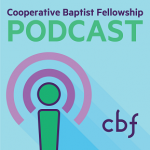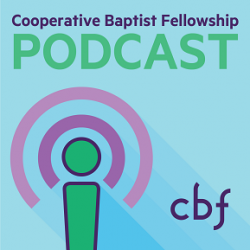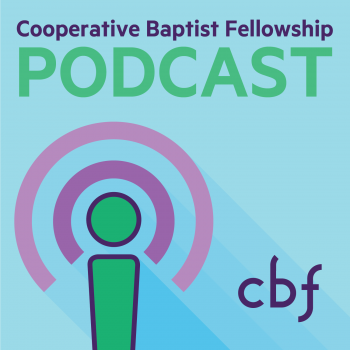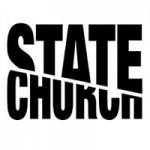By Aaron D. Weaver
Several years ago, during the summer of 2014, I wrote a column titled “When Government Spies on Religion” about a lawsuit filed in federal court by a group of Muslims against the city of New York. This group of Muslims—which included Rutgers University students, business owners and a decorated Iraq War veteran—alleged in Hassan v. City of New York that the New York Police Department (NYPD) had violated their religious freedom with a decade-long sprawling and suspicion-less surveillance program that mapped and monitored Muslim communities in New York and New Jersey in the years following the September 11 terrorist attacks.
Just shy of six years after the Hassan suit was filed, the Muslim plaintiffs and the NYPD reached a settlement with the nation’s largest police department. As part of the settlement, the NYPD agreed not engage in suspicion-less surveillance on the basis of religion or ethnicity and to develop new policies and training materials for its Intelligence Bureau and pay $75,000 in damages, albeit without admitting wrongdoing.
The surveillance program targeted Muslim-American communities exclusively on the basis of their faith and not out of a suspicion of criminality. And, thanks to the Pulitzer Prize-winning investigative reporting of the Associated Press, the NYPD’s program was uncovered in 2011. This reporting revealed that the NYPD had acquired informants in each and every mosque within a 250-mile radius of New York City and undercover police officers were used to keep tabs on conversations and community activities outside the mosques’ walls. The NYPD had spied on at least 20 mosques, 14 restaurants, 11 retail stores, two grade schools, and two Muslim Student Associations in New Jersey, according to the report.
In October 2013, the Baptist Joint Committee for Religious Liberty joined more than 120 civil rights, faith-based and community organizations urging the U.S. Department of Justice to open an investigation into the surveillance practices of the NYPD.
“The NYPD’s surveillance program is based on the false and unconstitutional premise that Muslim religious belief, practices, and community engagement are grounds for law enforcement scrutiny. That is a premise rooted in ignorance and bias,” the letter said.
A federal district court judge dismissed the suit in February 2014 and the Muslim plaintiffs appealed to the Third Circuit Court of Appeals. Religious liberty advocates representing more than a dozen faith groups—including Sikhs, Jews, Muslims, mainline Protestants, Unitarian Universalists and Hindus—filed an amicus brief in support of Muslim-Americans whose religious freedom had been violated by the city of New York. They stressed that targeting a specific religion with a mass surveillance program “compromises religious liberty” and amounted to an “appalling assault” on First Amendment values.
The faith groups argued that the NYPD’s spy program has had a “direct and extremely deleterious effect on the Muslim community’s free exercise of their religion.” Because of the NYPD’s infiltration, imams avoided private conversations and counseling sessions with congregants out of a suspicion that those persons might be informants. The surveillance caused a decline in mosque attendance and prompted many Muslims, including the plaintiffs, to avoid openly discussing their beliefs out of a fear of being misinterpreted and to avoid unwanted attention from law enforcement.
The Third Circuit would reverse the District Court’s dismissal, ruling a year later that targeting Muslims for surveillance is a stigmatizing injury that gave the Muslim plaintiffs legal standing, and also held that courts simply cannot accept at face value the NYPD’s claim that discrimination was necessary to protect national security. The court compared this rationale behind the NYPD’s claimed authority to surveil Muslim communities to the government’s treatment of “Jewish-Americans during the Red Scare, African-Americans during the Civil Rights Movement, and Japanese-Americans during World War II.”
The Third Circuit court’s opinion gave new life to the Hassan suit as well as additional legal challenges. Settlement discussions soon began and culminated two years later with the April 9 announcement mentioned above.
This case harkens back to 1980s and the federal government’s surveillance of churches thought to be involved in the Sanctuary Movement. Then, the U.S. Immigration and Naturalization Service (INS) launched an investigation into religious organizations and their leaders suspected of providing shelter and safe haven to undocumented Central Americans who had fled violence in their homelands in search of asylum.
In 1987, the Presbyterian Church (USA) and the American Lutheran Church sued the INS and the U.S. Department of Justice. Two years later, a federal appeals court concluded that a church is injured “when congregants are chilled from participating in worship activities [and] when they refuse to attend church services because they fear the government is spying on them and taping their every utterance.”
This is that.
We must remember that real religious liberty is for all, and we should raise our voices when the government targets and discriminates against people of faith—whether spying on them because of their faith or banning them because of their faith.
Aaron D. Weaver serves as Communications Director for the Cooperative Baptist Fellowship. He received his Ph.D. in Religion and Politics from Baylor University, where his research focused faith-based advocacy and environmental justice. Weaver is the author of several books including James M. Dunn and Soul Freedom and Different and Distinctive but Nevertheless Baptist: A History of Northminster Baptist Church (1967-2017).
Note: The views expressed here in columns and commentaries are solely those of the authors.
Interested in writing for CBF at Patheos? Submit your column idea to CBF Communications Director Aaron Weaver at [email protected].











